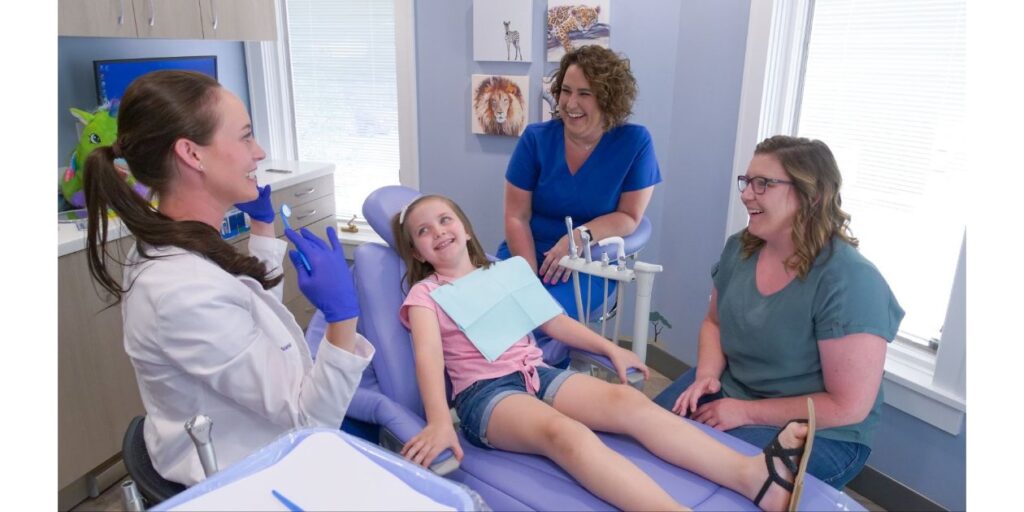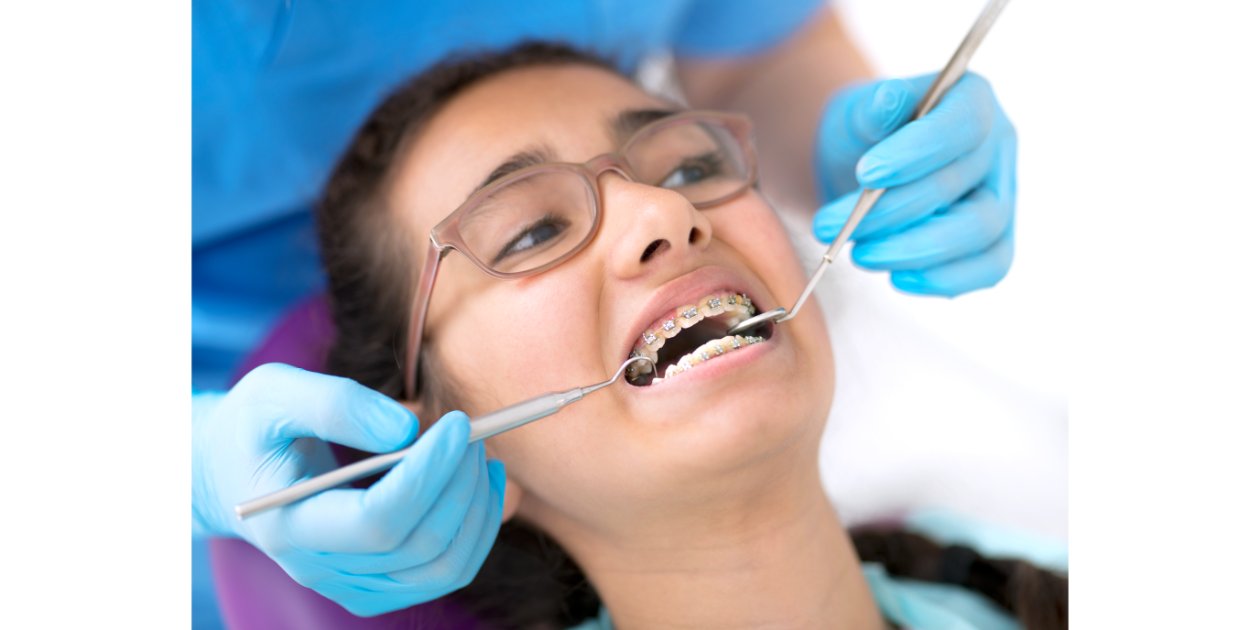Here at Sycamore Orthodontics & Pediatric Dentistry, we’re committed to helping you smile more! Dr. Peter and Dr. Sarah Barysenka are experts in orthodontics and pediatric dentistry, respectively, so we’ve got your whole family covered. A common question new patients have is, ‘will braces affect my speech’? Well, read on! We’ve got that answer, plus a whole lot more.
Understanding Braces and Orthodontic Treatment
Orthodontic treatment, including the use of braces, is a common and effective way to achieve a beautiful, straight smile. If you’re considering braces, you might be wondering how they could potentially impact your speech.
Before delving into the topic of speaking with braces, let’s briefly discuss what braces are and why they are used in orthodontic treatment. Braces are dental appliances designed to correct misaligned teeth and bite issues. They consist of brackets, wires, and sometimes bands, all working together to gradually move your teeth into their desired positions. This process can take several months to a few years, depending on your specific needs.
Speaking with Braces: Is It Hard to Talk with Braces?
One of the most common questions people have when getting braces is whether it’s difficult to speak with them. It’s natural to be concerned about potential changes in your speech patterns. However, in most cases, the impact on speech is temporary and relatively minor.
The Initial Adjustment Period
During the initial days or weeks after getting braces, you may notice some changes in the way you speak. Your tongue, lips, and cheeks need time to adapt to the presence of the braces in your mouth. This adjustment period may lead to some temporary difficulties with pronunciation and clarity. You might find it a bit challenging to enunciate certain words or sounds.

Overcoming Challenges
The good news is that your body is incredibly adaptable, and with practice, you can overcome these initial challenges. Here are some tips to help you adjust to speaking with braces:
- Practice Makes Perfect
- One effective way to adapt to speaking with braces is by practicing your speech regularly. Reading aloud, engaging in conversations, or even recording yourself speaking can help you get used to the feeling of braces in your mouth. It’s like learning to play a musical instrument; the more you practice, the more comfortable and confident you become. Over time, you’ll find that your speech becomes clearer and more natural.
- Hydration is Key
- Staying well-hydrated can significantly contribute to your comfort when speaking with braces. Proper hydration helps reduce dryness and discomfort in your mouth, making it easier to speak comfortably. When your mouth is adequately moistened, your tongue and lips can move more freely, enhancing your ability to articulate words clearly.
- Diction Exercises
- In some cases, your orthodontist may recommend specific diction exercises to improve speech clarity while wearing braces. These exercises are designed to target specific speech challenges you may be facing. They can be a valuable tool in regaining your normal speaking patterns and addressing any persistent difficulties. Your orthodontist will provide guidance on these exercises and monitor your progress to ensure that your speech continues to improve.
- Following Orthodontic Advice
- Lastly, it’s crucial to follow the advice and recommendations of your orthodontist regarding the care and maintenance of your braces. Regular adjustments and check-ups are essential to ensure that your treatment progresses as planned. Your orthodontist is there to support you throughout your orthodontic journey, addressing any concerns you may have about speaking with braces. By following their guidance, you can achieve not only a straighter smile but also clear and confident speech.
Addressing the Lisp
A common concern among our patients with braces is the development of a lisp. But what exactly is a lisp? A lisp is a speech disorder characterized by the mispronunciation of the sounds “s” and “z.” While some patients may experience a temporary lisp when they first get braces, it usually resolves as they become more accustomed to the appliances.
While braces may initially present some challenges when it comes to speaking, these difficulties tend to smooth out with a little time. With patience, practice, and guidance from Dr. Barysenka, you can adapt to speaking with braces and continue to communicate effectively. If you have any concerns or questions about your orthodontic treatment at Sycamore Orthodontics and Pediatric Dentistry, don’t hesitate to reach out to our experienced team. We’re committed to helping you find a straight, beautiful smile while maintaining clear and confident speech.

Call Today!
At Sycamore Orthodontics & Pediatric Dentistry, we love our amazing Sycamore-area patients, and we hope we’ve given you some much-needed answers to questions about braces and your speech. But we know we haven’t answered all of your questions here, so give us a call! We’re standing by to see you smile!
